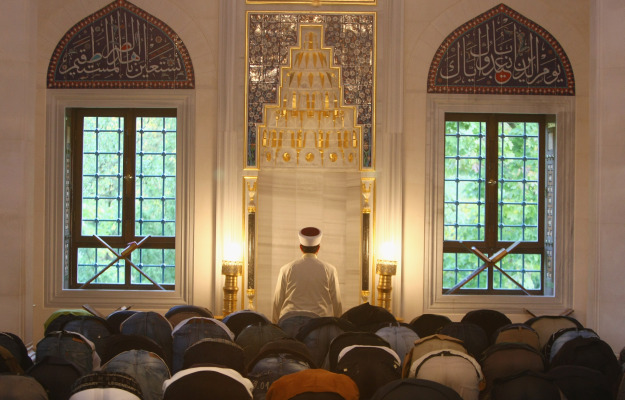From Paul Hockenos, Foreign Policy: For decades, no one in Germany took much notice of the imported Islamic holy men in their midst. Turkey’s Presidency of Religious Affairs sent imams inconspicuously, on four-year postings, to minister to the spiritual needs of West Germany’s Turkish migrant workers and their families — while keeping them in line with Turkish cultural norms.
But today, Germany’s Turkish imams find themselves square in the public spotlight. Berlin and Ankara are wrapped up in a fierce battle — and it’s not just about religion. Both countries are vying for the allegiance of the 3-million-strong Turkish diaspora in Germany, a population that represents two-thirds of the country’s Muslims. And both sides see the imams as the lynchpin to Germany’s Turkish community. The imams are uniquely trusted authority figures among the Deutschtürken (German Turks) who first came to Germany as Gastarbeiter — cheap, imported labor — in the 1960s. …
But most of Germany’s imams are "traditional-conservative," or, as [religious scholar Rauf ] Ceylan labels them, "the Prussians among imams." These preachers are overwhelmingly Turkish civil servants — employees of the Turkish state — on postings, most placed in parishes through Germany’s largest Islamic organization, the Turkish-Islamic Union for Religious Affairs (DITIB), known in Germany as "Ankara’s long arm. …"
The Turkish imams’ wages are paid by the government in Ankara, which regularly vilifies integration as a betrayal of Turkdom. Turks abroad should stay Turkish, whatever their citizenship, Prime Minister Recep Tayyip Erdogan has proclaimed. On visits to Germany, Erdogan has even called assimilation a "crime against humanity" and urged the creation of all-Turkish high schools in Germany. Ankara, which recently created a cabinet-level Office for Turks Abroad, even urges diaspora Turks to act in Turkish interests, as a kind of pro bono foreign service.
Although DITIB denies it, its imams are Turkey’s primary mechanism for keeping German Turks, now in their fourth generation, from becoming, simply, Germans. …
The religion ministry in Ankara writes the Friday sermons both for Turkey and the diaspora, including DITIB-run mosques in Germany. …
The issue of Germany’s Turks has become a nasty sore spot in the often troubled relationship between Turkey and Germany. German Chancellor Angela Merkel snapped back to Erdogan that "integration" isn’t "assimilation." Germany doesn’t want to turn Turks into Germans, she says, but the one-time migrants should join in German public life.
Paul Hockenos is the author of "Joschka Fischer and the Making of the Berlin Republic: An Alternative History of Postwar Germany." (photo: Gallup/Getty)
Image: gallup%207%206%2010%20War%20Over%20Germany's%20Imams.jpg

